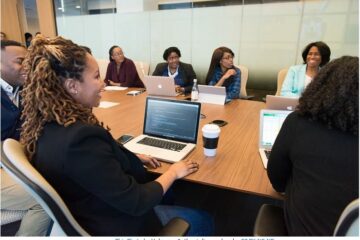Media Information Literacy: An Essential 21st-Century Skill for Teachers, Students, and Professionals Across Industries
In today’s digital-first world, where we are constantly bombarded with information from countless sources, the ability to critically assess, interpret, and utilize information has become crucial. Known as Media Information Literacy (MIL), this skill is vital not only for executives in top corporations but also for professionals across all fields, including healthcare, education, logistics, hospitality, and more. At Ewaylearn, we recognize that educators are at the forefront of imparting these skills to the next generation, and our mission is to empower them to lead with confidence in this evolving media landscape.
What is Media Information Literacy?
Media Information Literacy encompasses the ability to access, analyze, evaluate, and create media across various platforms. More than just a set of skills, MIL fosters critical thinking, encouraging individuals to recognize bias, identify credible sources, and communicate effectively through digital media. For educators, MIL is more than just a useful tool—it’s a necessity. Teachers today serve as guides for students who live in a fast-paced digital world, helping them navigate information in a way that is accurate, ethical, and effective.
Why MIL is Essential for Teachers and Students
As teachers, developing and reinforcing MIL skills in the classroom has never been more crucial. Here’s why:
- Building Critical Thinking and Digital Literacy: With so much content readily available online, students need to discern credible information from unreliable sources. MIL equips both teachers and students with the skills to evaluate sources and question the validity of the information presented to them.
- Preparing for a Diverse, Digital World: Today’s students are tomorrow’s workforce. Their understanding of how to responsibly manage, interpret, and disseminate information will be an asset across sectors. Teachers who model effective media literacy can help prepare students for real-world scenarios in diverse industries, from understanding scientific data in healthcare to interpreting market trends in business.
- Promoting Civic Responsibility: Information literacy enables students to participate in society responsibly, ensuring they can separate facts from misinformation and contribute meaningfully to public discourse. Teachers can inspire students to become more informed and responsible citizens who value truth and transparency.
- Supporting Lifelong Learning: Media landscapes evolve rapidly, and learning how to learn becomes essential. MIL encourages students and teachers alike to remain adaptable, ensuring they are well-prepared to handle future changes in technology and information channels.
MIL: A Skill Set Needed Across Industries
Media Information Literacy isn’t just a classroom skill—it’s valuable across many fields. Here’s how MIL supports different sectors:
- Healthcare: Professionals who can accurately interpret data and communicate findings effectively are invaluable. MIL in healthcare helps staff stay updated with the latest research, manage health information, and communicate transparently with patients.
- Logistics: With globalization and digital transformation, logistics experts must understand digital tools for tracking and analyzing supply chain information. MIL enables them to use these resources effectively while also understanding the broader market and regional news that can impact operations.
- Education: Teachers with MIL training from Ewaylearn bring updated methodologies into their classrooms, helping students develop media competencies that prepare them for a data-driven world.
- Hospitality: With online reviews and social media platforms influencing consumer behavior, hospitality professionals with strong MIL skills can monitor, interpret, and act on guest feedback effectively.
Ewaylearn’s Role in Empowering Educators with MIL
At Ewaylearn, we believe that well-equipped teachers lead to well-prepared students. Our faculty development training is designed to help educators master MIL skills, enabling them to foster a culture of critical thinking and informed media use within their classrooms. Through practical workshops, hands-on activities, and in-depth discussions, we help educators stay ahead of digital trends and empower them to guide students effectively.
Conclusion
As digital media continues to shape our world, Media Information Literacy becomes not just an advantage but a necessity. By investing in MIL training, we can equip teachers and students with the skills they need to thrive in the 21st century and contribute responsibly across all sectors of society. At Ewaylearn, our commitment is to make this essential skill accessible to all educators, building a foundation of informed and responsible media consumers for generations to come.
Together, let’s build a future where knowledge is powerful, critical thinking is second nature, and information is a tool for positive impact.


